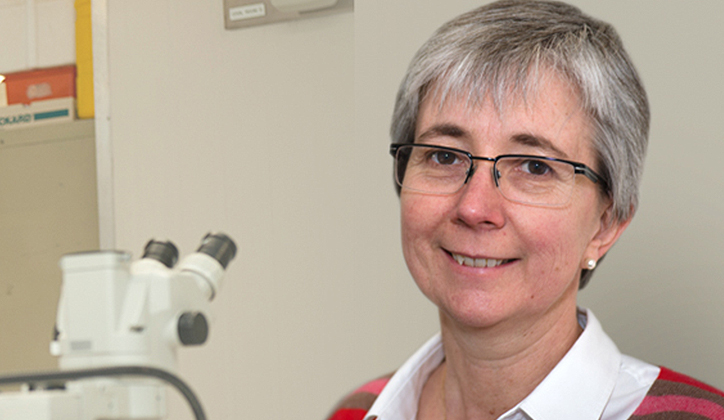After an extensive international recruitment process, Professor Barbara Messerle has been appointed to the role of Executive Dean of Science.
We asked Professor Messerle a number of questions about her academic background, aspirations for the role and the challenges that lie ahead.
What’s the layman’s version of your academic background and expertise?
I studied Science at the University of Sydney, with a PhD in method development for molecular structure determination. Following a postdoctoral position at the ETH, Zurich, where I worked on the three dimensional structures of proteins with Nobel Laureate Professor Kurt Wuethrich. I returned to Australia and after a number of years as a QEII and then ARC Senior Research fellow, I became an academic and Head of the Chemistry School at the University of New South Wales.
My research today is about developing catalysts and new methodologies for promoting the selective and efficient synthesis of important biologically active molecules. Understanding the structure and function of reactive molecular species has always underpinned my research.
Why did you choose that discipline?
The structure and function of molecules, and our ability as chemists to design and create new molecules that have a particular function has always fascinated me. I enjoy the challenges of developing new catalysts and learning how they work, and after 25 years in the field I am still excited by the opportunities and challenges this area of research provides.
What do you hope to achieve in your new role?
I am looking forward to taking an already successful Science Faculty and finding new areas to develop to build a vibrant place to study and do research in Science and Engineering. Ensuring that the Faculty has a strong base in the fundamental sciences will provide a platform for interactions in teaching and research across disciplines. By growing the research in the Faculty across a breadth of disciplines, I hope to build on Macquarie’s already strong partnerships with industry and government organisations.
In the area of teaching I will be supporting the development of new undergraduate programs that are exciting and attractive to students and lead to interesting and fulfilling careers. By providing degree programs that incorporate new approaches to learning and by giving students opportunities to take part in the research directions of the Faculty, I hope to attract the best science students to Macquarie.
What are the challenges that lie ahead?
There is a very real need for Australia to build its capabilities in Science and Engineering and grow the cohort of students and individuals trained in Science and Engineering. This will underpin the development of a strong economy that is able to compete successfully on a world stage, and is essential if Australia is to be respected internationally as an innovative country. One of our challenges as a Science Faculty will be to communicate the importance of scientific research and science education to the wider community and encourage young people to take up science with enthusiasm, knowing that it will lead to exciting careers.
There are significant challenges that we face as a society today that the Science Faculty will address both by building on existing capabilities and by developing new capabilities, including environmental issues such as climate change, new approaches to solving our problems with energy, and global challenges in health. Building the research effort to address these will involve strengthening the ties between the Science Faculty and partners in other faculties at Macquarie as well as nationally and internationally.
What do you see for the future at Macquarie?
I am excited by the innovative approach that Macquarie has taken to create a new space for itself, recently putting in place excellent opportunities for building its research impact. With growing links to industry and the new hospital, Macquarie will be able to build research capabilities and make strong contributions in Science and Engineering. This will provide the basis for building a growing cohort of excellent students. Macquarie will be able to take advantage of new approaches in learning available today to build new degree programs for students and encourage the best students to study at Macquarie.

